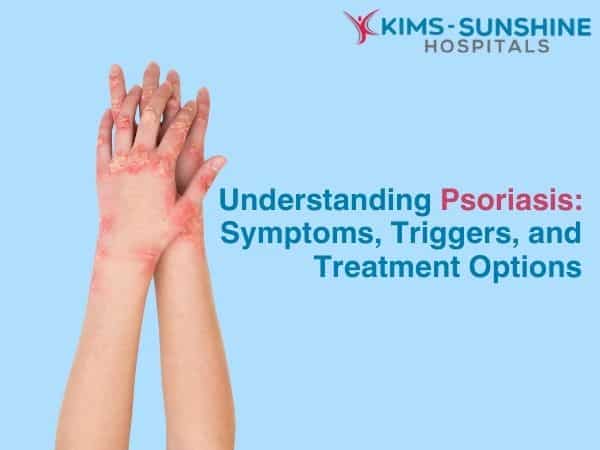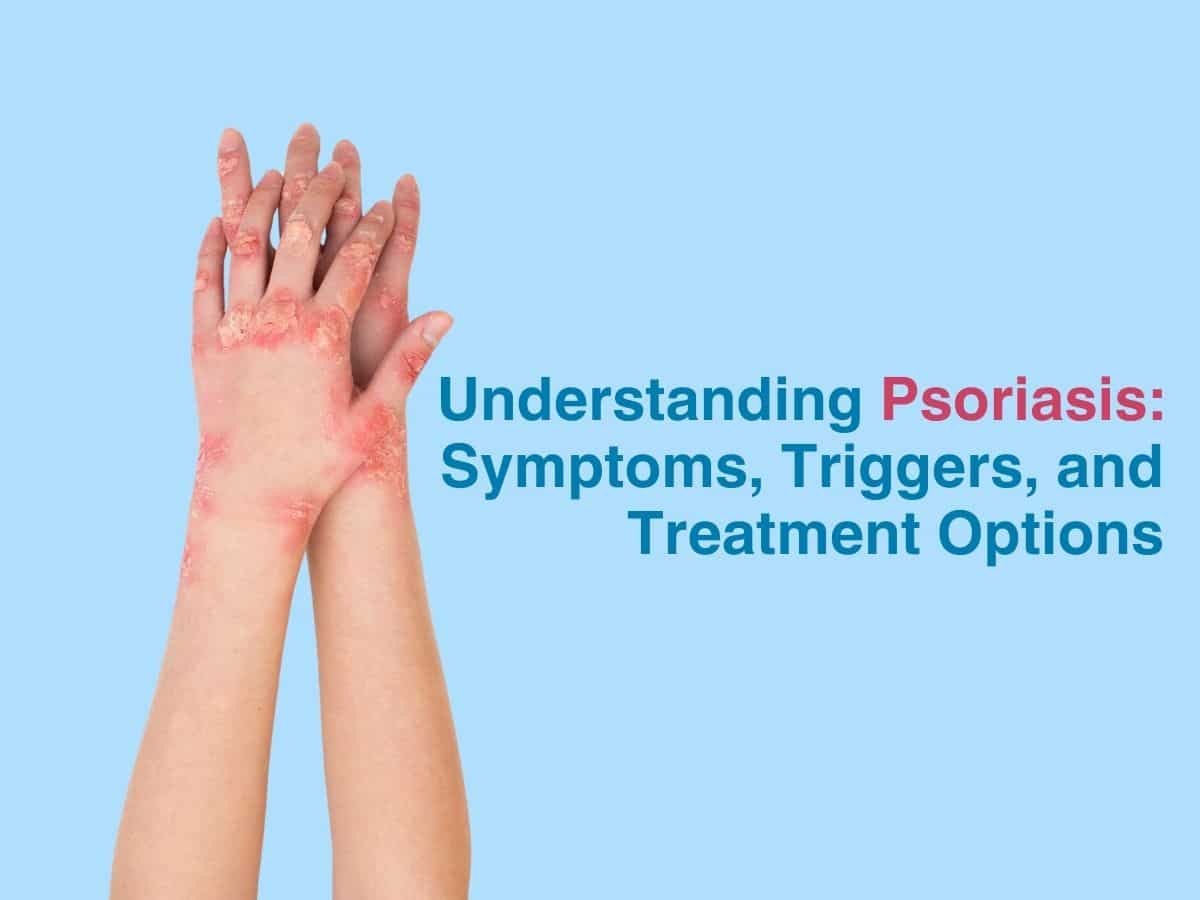
Understanding Psoriasis: Symptoms, Triggers, and Treatment Options

Psoriasis is caused when your immune system thinks it is ok to destroy the skin cells of your own body. Skin cells normally grow in several layers and they are alive for about a month or so, before they die and are sloughed off. But when you have psoriasis, your skin cell turnover rate is much higher- new cells are formed every 3-4 days instead of about 30 days. They don’t fall off either and tend to accumulate on the top- forming painful, itchy and very sensitive plaques or scale-like growths. This can happen anywhere as we have skin all over the body, but the effects are highly pronounced at the elbows, knees and the trunk or extremities. There are different kinds of psoriasis too. The good news is it is NOT infectious. The bad news? It is chronic and does NOT have a cure.
What Are The Early Signs Of Psoriasis?
The repeated death and formation of new skin cells can cause visible bumps which can then become raised plaques that are deeply coloured and very itchy. You should resist the urge to scratch the affected area as it can cause bleeding. Another marker is when the plaque formed is of a different colour- like red, purple, blue etc.. You will also notice changes on your nails, extreme dryness of skin and even joint pain in rare cases due to a condition called psoriatic arthritis (arthritis is an autoimmune disease too).
Psoriasis Triggers And Prevention Tips
Since this condition is highly dependent on how your immune system functions, anything that affects it can worsen symptoms. These causes are commonly termed ‘triggers’ and some of them are – a skin infection, excessive levels of stress, hormonal changes like during menopause or andropause, side effects of medication or even temperature changes.
Some commonly employed pointers to reduce flare ups are as follows:
- You should develop a good skincare regimen and stick to it. You should also use ones which are of good quality and which won’t worsen your symptoms. You can talk to a dermatologist for more help with this.
- You should actively look at employing stress reducing techniques everyday like meditation, get in touch with your hobby etc.
- You should promptly take care of any cuts, scrapes or bruises and not let them fester.
- You can try using a humidifier in the winter to prevent any dry skin related complications.
- Never scratch any itchy or exposed part of your skin.
Best Treatment Options For Psoriasis
Some of the best options to deal with psoriasis include using good quality moisturisers, steroid containing topical creams, Vitamin D3 or A containing creams or serums, but treatment definitely depends on how severe your symptoms are and where the affected area is. But, when the issue is large scale, you may be given light therapy, retinoids, immunotherapy, cyclosporine or even methotrexate by your healthcare provider.
Conclusion
You can try to make lifestyle changes to reduce psoriasis flare-ups which actually make sense. There is no use if you begin something and just stop doing it because it is hard to continue with. This means you should be careful with what you eat, how you handle stress and talk to a doctor when your symptoms get worse. Psoriasis symptoms can go away after some time but it can come back when you get exposed to the same combination of triggers as before. So, with psoriasis, prevention is the best way really.
Frequently Asked Questions
What are the first signs of psoriasis?
Can psoriasis be cured or only managed?
Are there natural remedies that help with psoriasis?
What lifestyle changes can reduce psoriasis symptoms?
Is psoriasis hereditary, and can I pass it on to my children?

Dr. Suvidha Gandra
MBBS, MD (Dermatology, Venereology & Leprosy)
Dermatologist and Trichologist






